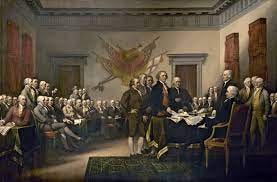Quick Announcement: I’ll be leading a discussion on Heidegger and the Purpose of Art on September 9. Sign up here.
Regular readers will note that I often revisit the work of Hegel, Kojeve, and, Fukuyama, a lineage of thinkers keyed into the primacy of the struggle for recognition.
In The End of History, Fukuyama applies his Hegelian lens on the Declaratio…
Keep reading with a 7-day free trial
Subscribe to What Is Called Thinking? to keep reading this post and get 7 days of free access to the full post archives.



